Site Search
- resource provided by the Forum Network Knowledgebase.
Search Tip: Search with " " to find exact matches.
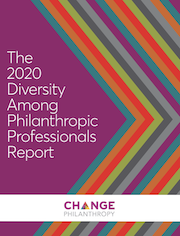
This second edition of the Diversity Among Philanthropic Professionals (DAPP) Report offers a snapshot of the philanthropic sector’s workforce in a very specific space and time — in the chaotic year that was 2020. The DAPP report aims to help the philanthropic community better understand its workforce and leadership. It is unique in soliciting anonymous self-reporting from individuals on the staff and board of participating foundations, helping grantmakers to accurately assess the culture and climate of their institutions.
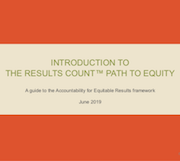
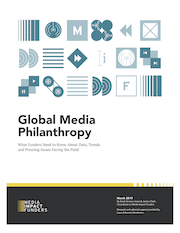
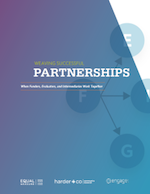
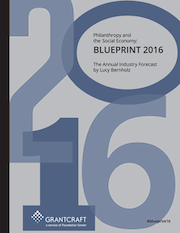
Funding Indigenous Peoples: Strategies for Support, looks at how funders collaborate with and bring support to indigenous communities around the world. Through examples from a diverse range of foundations, this guide explores how grantmakers work with indigenous peoples, the approaches they take, and the practices they find effective.
This guide was developed in collaboration with International Funders for Indigenous Peoples (IFIP).


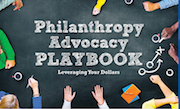
This publication provides information on 11 benefits and conversation-starters about philanthropic advocacy and lobbying. Specifically, it answers your questions about legal rules and provides concrete examples, templates, resources, and tips.
The goal is to help foundations and their grantee partners understand how advocacy and lobbying leverages their grant dollars, strengthens their missions, and helps them shape positive policy change to benefit communities.
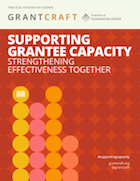
In Supporting Grantee Capacity: Strengthening Effectiveness Together, GrantCraft looks at how funders approach building capacity with grantees. Through examples from foundations ranging in size, mission, and geography, we explore various strategies for capacity building and the types of awareness that funders can choose to incorporate in decision making to facilitate informed, thoughtful judgments about strengthening organizations.
Six million immigrants in the US have jobs that could increase their risk of contracting the virus -- from physicians and home health aides to agriculture and food production workers. Another 6 million work in areas that have suffered major financial loss, including the restaurant and hospitality industry, in-home childcare, agriculture, and building services.
Yet, documented and undocumented immigrants are ineligible for federal relief funds and government-sponsored safety-net programs. Many “essential” workers lack health insurance. Language barriers often make getting services difficult. And, fear of repercussion if they test positive for COVID or uncertainty around immigrant policies prevent many immigrants from even seeking assistance.
During this webinar briefing, we will hear from Abel Rodriguez, Director for the Center on Immigration and Assistant Professor of Religion, Law, and Social Justice at Cabrini University and Sara Cullinane, Director of Make the Road New Jersey.
Topics will include:
• How immigrants and their families have been impacted by COVID, nationally and in our state.
• Supporting immigration policies and programs that advance the social and economic well-being of immigrant populations.
• Efforts in New Jersey communities to provide direct support, education, and other needed resources to immigrants during the pandemic.
Nearly 1 in 4 New Jersey residents is an immigrant. And despite their vital importance to this state and our country’s culture and economy, immigrants are often left out of programs and denied services that are critical for recovery. Join us for an important briefing on why your organization’s response to COVID must uplift immigrants and their families – now and for the future.
Cost: Free for CNJG Grantmakers. $50 for Non Member Grantmakers
Webinar Video
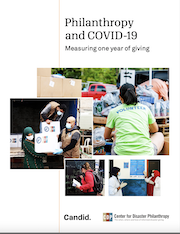
As of February 22, 2021, the coronavirus pandemic has claimed the lives of more than 2.5 million people around the world, with an additional 110 million people infected. And while data such as this serves an enormous purpose in understanding the scale and scope of a disaster, aiding experts in determining needs and directing resources, it remains far from the complete picture of the impact of COVID-19 on humanity.
Philanthropy’s response to the COVID-19 pandemic demonstrates that not only can donors be exceedingly generous in a crisis, but they can lead through trust and courage. In this new report, the Center for Disaster Philanthropy and Candid recognize this leadership, as demonstrated by increased overall giving, even if too little of it is in the form of unrestricted grants and funds directed toward Black, Indigenous, and other communities of color. There remains much to be done, especially regarding support for programs that deliver the policy and system changes necessary to redress generations of inequities.
On this webinar, Newark funders discussed the childcare practice and policy during COVID-19 and heard front line observations on matters of mental health and domestic violence.
Speakers:
Ceil Zalkind, President and CEO, Advocates for Children of New Jersey
Beverly Lynn, CEO, Programs for Parents
Maria Ortiz, Executive Director, Student Life, Newark Board of Education
LaKeesha Eure, Director, Shani Baraka Women’s Resource Center and Chair, Newark Anti-Violence Coalition
Webinar Video
